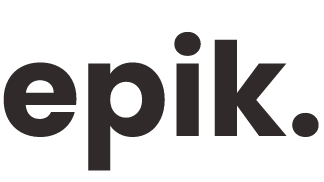Choosing how you present your business to the world is one of the most important choices you’ll make as a business owner. That’s why we’re excited to guide you through the process of setting up a DBA, which allows you to operate under a name different from your legal business name. But why would you want to do that? And is it always the best choice?
Here’s what you need to know.
What is a DBA?
A DBA stands for “Doing Business As.” While you’ve likely heard the acronym, it’s important to note that DBA is not always synonymous with terms like trade name, assumed name, or fictitious business name, which can vary based on legal distinctions in different states. A DBA allows you to conduct business under a name that differs from your legally registered business name, which is especially useful for branding and marketing.
For instance, consider Jane Smith, a sole proprietor, who plans to open a coffee shop. Instead of using her own name, she opts for the DBA “Brilliant Beans.” This market-friendly, business-oriented name not only attracts more customers but also aligns better with the coffee industry, enhancing her shop’s appeal.
Similarly, a business entity like “Eclipse Enterprises, LLC,” which operates a chain of yoga studios, might opt to use the DBA “Morning Sun Yoga.” This DBA helps convey a specific identity that resonates more with their target audience, focusing on rejuvenation and vitality, rather than the more generic name of the LLC.
Benefits and Advantages of Using a DBA
Adopting a DBA can offer advantages for business owners across various industries. From enhancing your brand’s visibility to protecting personal privacy, the strategic use of “Doing Business As” has multiple benefits:
Enhanced marketing and branding
A DBA lets you create a business name that reflects your brand’s identity and mission without having to form a new company. It’s an effective way to align your business operations with your marketing strategies.
Privacy protection
For sole proprietors, using a DBA can provide a level of privacy by not having your personal name directly associated with the business operation. You might think of it as an alias, like Bruce Wayne flying under the radar, working nights as Batman. If “Batman” is Bruce Wayne’s official DBA, it helps maintain Wayne’s privacy and separates his personal identity from his business operations.
Business flexibility
A DBA allows you to operate multiple business ventures under different names without creating separate legal entities for each one. This can be a cost-effective way to explore different business markets. For instance, a bakery named “Sweet Treats, LLC” could also operate under the DBA “Savory Snax” for a line of non-sweet baked goods, diversifying the business without forming a new LLC
DBA vs. LLC – Understanding the Differences
While a DBA offers some benefits, it’s important to understand how it compares to forming an LLC (Limited Liability Company). An LLC provides several additional advantages:
Liability protection
Unlike a DBA, an LLC legally separates the business owner’s personal assets from the business, protecting them from being used to satisfy business debts and liabilities.
Enhanced credibility
Forming an LLC can boost your business’s credibility with customers, suppliers, and lenders.
Tax flexibility
LLCs benefit from pass-through taxation but also have options to be taxed as a corporation if it proves advantageous.
Given these benefits, forming an LLC might be a preferable option, especially as your business grows and the need for personal asset protection becomes more critical. Epik is here to help streamline this process, offering you both the protection and the credibility of a formal business entity.
Setting Up a DBA
If a DBA is right for you, it’s easy to set one up. Here’s how:
- Choose a name.
Select a business name that fits your brand and meets your state’s naming requirements. - Check name availability.
Make sure the name isn’t already in use by performing a name search in your state. - Register your DBA.
File your DBA with the appropriate state agency—this usually involves filling out a form and paying a filing fee. On average, these fees can range from about $10 to $100. - Publish your DBA (if required).
In some states, such as California and New York, you are required to publish your DBA in a local newspaper. This public announcement is to inform the community of your use of a business name. Be sure to check the requirements for your state.
Considering Other Business Structures
While DBAs and LLCs are common choices for many business owners, incorporating as a corporation or forming a nonprofit are also viable options with unique advantages.
Corporations, for instance, offer the ability to raise capital through the sale of stock, which can be crucial for business expansion.
Forming a nonprofit allows you to operate for the public good and offers specific tax exemptions, making it a compelling option for those looking to address social, educational, or charitable objectives.
Ready to take the next step?
If you’re ready to form an LLC, a corporation, or a nonprofit, Epik has the tools and expertise to assist you at every step of your business journey. Get started today!

